By Blaine Taylor
From earliest recorded history to yesterday, it is now possible to trace virtually all major human conflicts on videotapes and DVDs through both rental and purchase.
Having been born in 1946, my years growing up were dominated by watching World War II and Biblical epics, in which Israelis (then called Israelites) defeated virtually all comers, from Syrians to Assyrians, from Egyptians to Romans—with the exception
of the latter, they’re still doing it. On television, I watched all the great black-and-white World War II sagas of the 1950s: Victory at Sea, The 20th Century (with Walter Cronkite, not yet Mike Wallace, as now), and the truly excellent Winston Churchill: The Valiant Years with its magnificent soundtrack (somehow—and inexplicably—this hasn’t resurfaced yet on the History Channel, but hope springs eternal).
I will go out on a limb here and predict that movies such as Saving Private Ryan and Pearl Harbor will create a virtual tidal wave of new war films and historic epics—from one-act set pieces to big-budget epics, and this will continue to flow into the already strong videocassette and DVD market. Nearly all of the following titles are available via rental or purchase through the Internet, direct mail catalogs, bookstores, and the like. Now let’s take a channel surf through history, era by epoch.
The Pharaohs are defeated by Moses in The Ten Commandments (starring Charlton Heston, Yul Brynner, and Sir Cedric Hardwicke). In The 300 Spartans, Greeks at Thermopylae delay the vast Persian Army. In Alexander the Great, King Philip (Fredric March) unites Greece, and his son (Richard Burton in the title role) crosses into Asia to conquer first Persia and then parts of India.
The Egyptian Army—drowned in the Red Sea—rebounds but is defeated again first by Julius Caesar in Caesar and Cleopatra (with Claude Rains and Vivien Leigh) and yet again in Cleopatra (with Rex Harrison, Elizabeth Taylor, and Burton for good measure as Marc Antony).
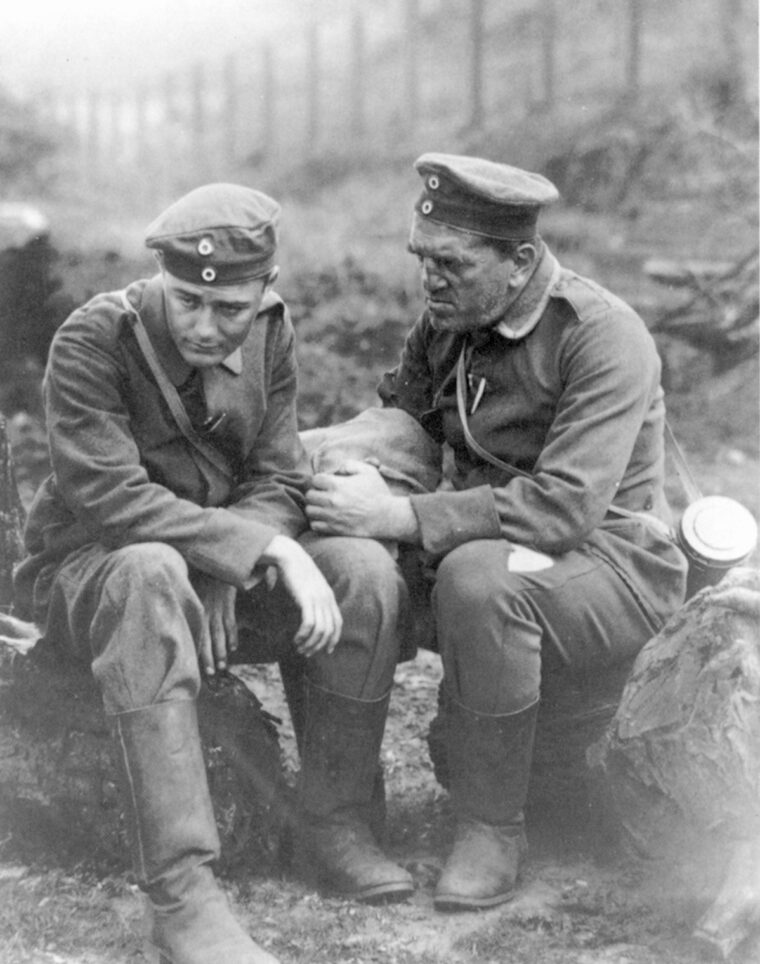
Next come the Romans, from the Republic that is threatened by the slave uprising of Spartacus (Kirk Douglas, Tony Curtis, and Sir Laurence Olivier) to the murder of Julius Caesar (with the great Louis Calhern in the title role). In the latter, Antony (Marlon Brando) defeats the anti-Caesar conspirators, and at length the Empire is founded.
The story of the first four Emperors (Augustus, Tiberius, Caligula, and Claudius) is magnificently told in the series I, Claudius (starring the versatile Derek Jacobi in the title role). It ends with his murder by Emperor Nero. Household Imperial guards (read Praetorian here) begin shaping power in history.
The ever-thorny problem of Judea and Palestine is tackled in both silent and sound versions of General Lew Wallace’s Ben-Hur (with Heston in the sound version) and the final resistance is stamped out in both the long and short versions of Masada starring Peter O’Toole in one of his best later roles. Germania is finally conquered in Gladiator under Emperor Marcus Aurelius, but the games concept of the amphitheater displays the inner rot that is Rome, and it collapses in The Fall of the Roman Empire (with Sir Alec Guinness, Stephen Boyd, Sophia Loren, and Christopher Plummer).
The African Moors fight the Spanish Christians and their Moors in El Cid (with Heston and Loren). Meanwhile, in England, King Arthur founds and loses his Round Table of Knights in Excalibur, and Prince Valiant (Robert Wagner) fights to join it.
The King-versus-Church struggle begins in Becket (Burton and O’Toole), while in Scotland, William Wallace (Mel Gibson) fights English King Edward Longshanks (Patrick McGoohan) in Braveheart. The Scots fight the same war in two versions of Rob Roy [one with Richard Todd in the Disney film (rare) and Liam Neeson in the later one]. They lose to the English again, but join them to fight at Waterloo with Wellington (Plummer) against Napoleon (Rod Steiger in one of the best roles of his career; ditto Plummer), but more anon.
The Battle of Agincourt is brought to life in two versions of Henry V: The 1944 version starred Laurence Olivier and the 1989 film featured Kenneth Branagh.
Numerous fine actresses have played French heroine Joan of Arc, among them Genevieve Bujold, Jean Seberg, Leelee Sobieski, Milla Jovovich and, of course, Ingrid Bergman, who also starred in Casablanca, For Whom the Bell Tolls, and Inn of the Sixth Happiness. All of the Joans burned at the stake, alas.
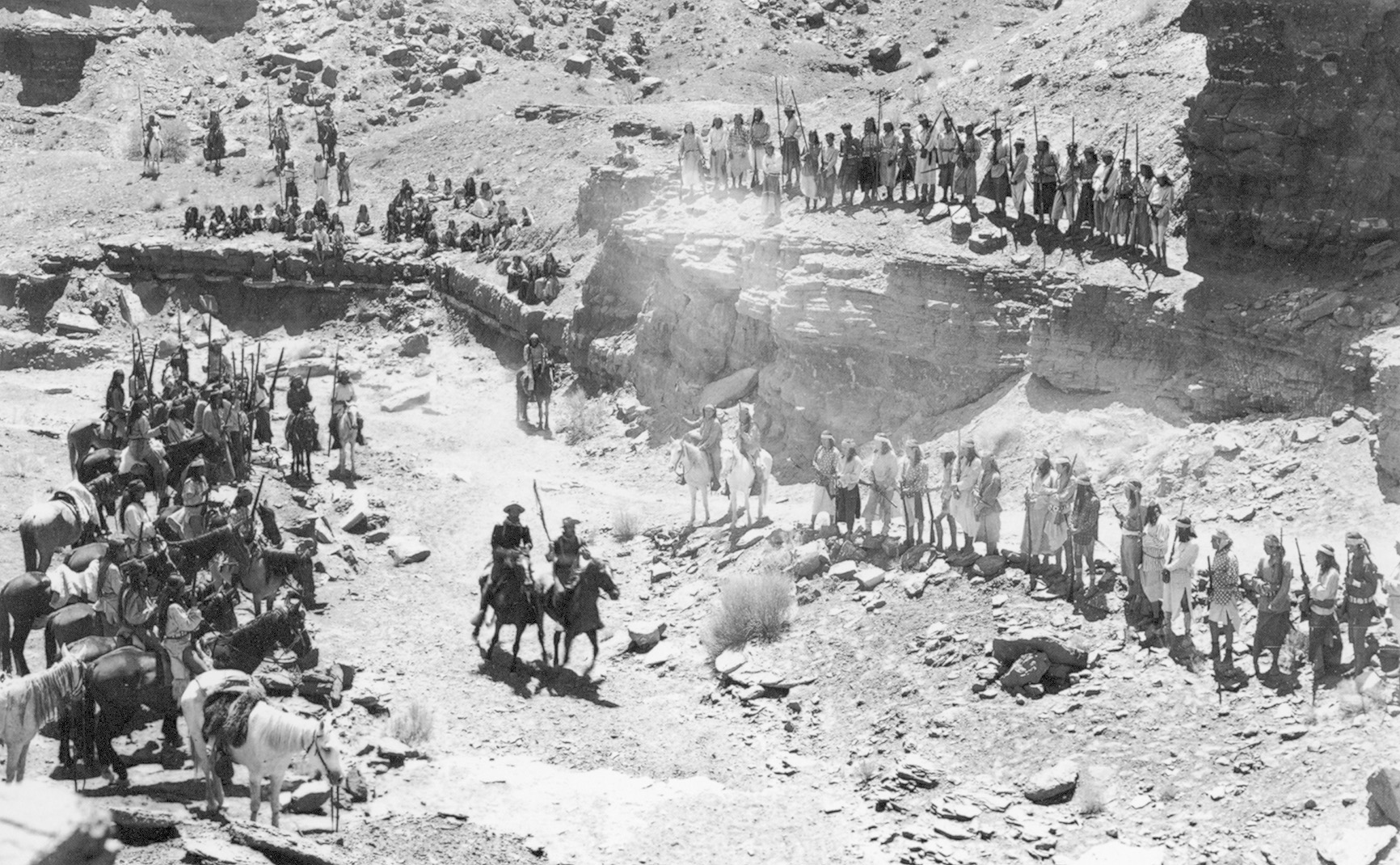
Queen Christina (the great Greta Garbo) is the feminist daughter of King Gustavus Adolphus who abdicates the throne and sails off, never to see Sweden again.
Meanwhile, in Royalist Bourbon France, there are several versions of The Three Musketeers, the latest being Disney’s (Charlie Sheen, Chris O’Donnell, et al.), followed by The Fifth Musketeer (Beau and Lloyd Bridges, Ursula Andress), who is actually The Man in the Iron Mask, of which there are several versions: one with Timothy Bottoms, another with Richard Chamberlain, still another with Leonardo Di Caprio and still more—thus, the James Bond of the Kings Louis.
Alas, the dynasty is overthrown in Marie Antoinette in a moving performance by Norma Shearer, with supporting roles by John Barrymore as XV and Robert Morley as a superb XVI. Off with their heads!
Now for the Napoleonic Wars. Napoleon stars Orson Welles, but he’s better in Waterloo as Louis XVIII, while Charles Boyer is in Conquest with his actual Polish mistress, Marie Walewska (Garbo).
Victorious on land (at least until both the Russian and American versions of War and Peace, anyway), the Emperor is thwarted at sea by both Captain Horatio Hornblower and the four-part I Remember Nelson (Kenneth Colley.) Rumor has it that Al Pacino is about to play the deposed “Little Corporal” in the upcoming Murder of Napoleon (Jack Nicholson has also been mentioned).
The post-Napoleonic era is well depicted in The Count of Monte Cristo (Chamberlain). Following their defeat by Bismarck (International Historic Films) in 1870-1871, Frenchmen branch away from Europe into world empires. The French Foreign Legion is formed and fights myriad battles, as in Beau Geste with Gary Cooper at Ft. Zinderneuf against those ever pesky Berbers.
The English, too, display a thirst for empire, and come to India (Jewel in the Crown), then leave it (Gandhi, with Ben Kingsley). They try America, and fight the French and Indians several times over in various versions of The Last of the Mohicans (the best being with Daniel Day-Lewis). After winning, their rebellious colonists defeat them in The Patriot (Gibson wins this time, but the Brits did not really burn those people in that church). They try again, however, and are beaten in The Buccaneer at New Orleans by Jean Lafitte (Brynner) and Andrew Jackson (Heston).
Hardheaded, the Brits fight the natives again in Zulu Dawn (O’Toole and Burt Lancaster) and are soundly thrashed, but the next day win a standoff at Rorke’s Drift in Zulu (Michael Caine overshadows then-veteran actor Stanley Baker). Prime Minister Edward Gladstone sends Charles “Chinese” Gordon (Heston) to Khartoum in the embattled Sudan and the charismatic Mahdi played by Olivier defeats him. Heston and Niven go to Imperial China and defeat both the Dowager Empress and the Boxers in 55 Days at Peking.
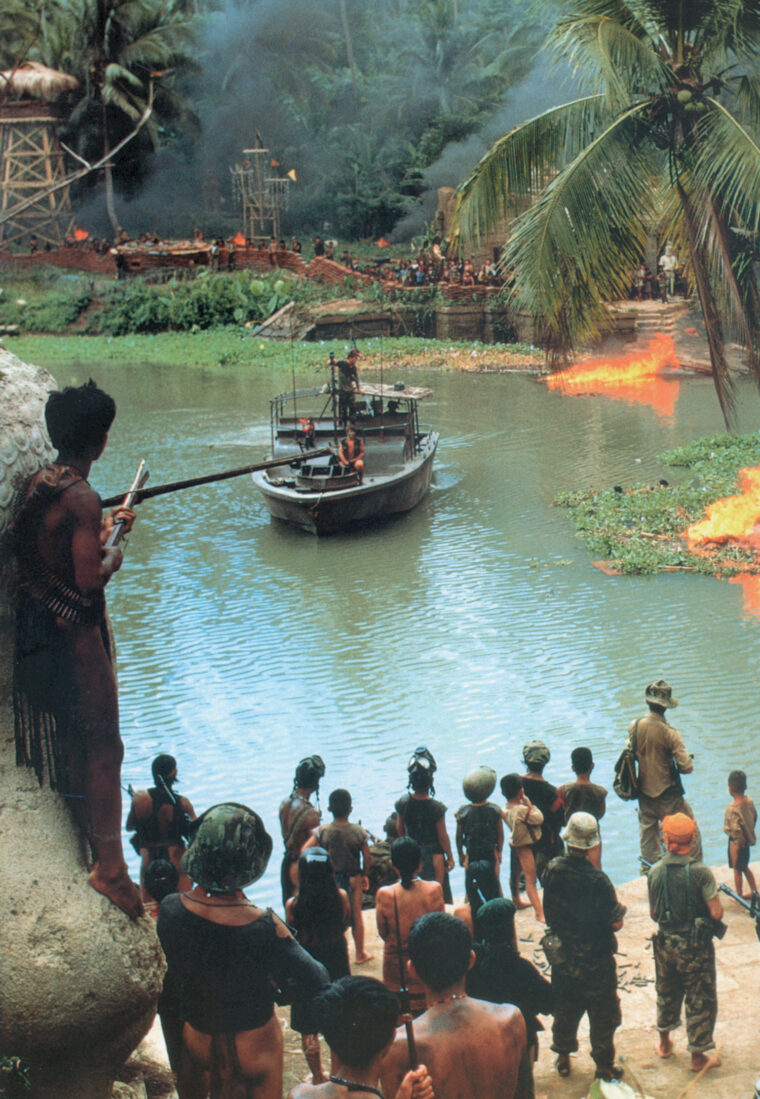
We have to hit rewind for a minute to catch up with the good old USA and her Mexican cousin. The Mexicans fight the Texans at the Alamo in too many versions to list, the most prominent being the John Wayne epic of 1960. The Spanish, Mexicans, and their Indian natives fight over Old California in several versions of Zorro flicks—both silent and sound, with both Douglas Fairbanks, Sr. and Jr.—plus Tyrone Power and, in our own day, Anthony Hopkins and Antonio Banderas in The Mask of Zorro (the best so far, I think.)
Burt Lancaster and Gary Cooper square off against the French and the Juaristas south of the border in Vera Cruz, as do Heston and Richard Harris in Major Dundee (with the Apaches thrown in for good measure).
This having been put behind them, the Americans go on to more serious matters—such as fighting the Civil War. This is accomplished in the silent Birth of a Nation (controversial), Gone With the Wind (Vivien Leigh and Clark Gable), Horse Soldiers (Wayne and William Holden), Glory (Denzel Washington, Matthew Broderick, and Morgan Freeman), plus the truly fantastic Gettysburg, with Martin Sheen as Lee, Jeff Daniels as Joshua Chamberlain, and Tom Berenger as James Longstreet.
Lincoln has been played by a number of great actors—Walter Huston, Henry Fonda, Sam Waterston, Raymond Massey, and Hal Holbrook among them—but the war is won and put behind as the conquest of the West and Manifest Destiny (1830-1910) continues, depicted in such films as How the West Was Won, MacKenna’s Gold, and The Big Country (Peck et al.), Shane (Alan Ladd), Unforgiven (Clint Eastwood and Gene Hackman), and the Shane remake called Pale Rider (Eastwood). Then there are the John Wayne classics: Red River, The Searchers, True Grit, The Shootist, and the John Ford cavalry trilogy filmed in Monument Valley: Rio Grande, She Wore a Yellow Ribbon, and Fort Apache.
In far-off Morocco, Sean Connery fights everybody (and wins) in The Wind and the Lion, while Brian Keith gives the best performance of his life as Teddy Roosevelt. The new bad guys emerge as—who else?—Germans, but Connery makes them look like monkeys. He does it again, with his son, played by Harrison Ford, in Indiana Jones and the Last Crusade.
Suddenly World War I bursts upon the world. The war at sea is highlighted in The Last Voyage of the Lusitania (National Geographic) and the air war in The Blue Max (James Mason, Ursula Andress, and ace George Peppard), and also Zeppelin (Michael York and Elke Sommer). For ground warfare there is the incomparable first version of All Quiet on the Western Front. The Germans lose again. And we follow Australia into the war in Gallipoli (Mel Gibson).
The new Mosley about British Union of Fascists leader Oswald Mosley (Jonathan Cake) is the best thing I’ve seen in years. As a counterpart, many actors have portrayed Churchill, most notably Richard Burton and Simon Ward (in Young Winston).
What about Russia? Soviet director Sergei Eisenstein produced Ivan the Terrible, Alexander Nevsky (defeating the Teutonic Knights), and Battleship Potemkin. Maximilian Schell romped in Peter the Great, Catherine the Great was played by Swedish actress Viveca Lindfors in Tempest and by Marlene Dietrich in The Scarlet Empress. The later Empire period is depicted by Garbo and March in one of several versions of Anna Karenina. The Russian Revolution is seen through two superb films: Doctor Zhivago (Omar Sharif and Julie Christie) and Nicholas and Alexandra (Michael Jayston and Janet Suzman.)
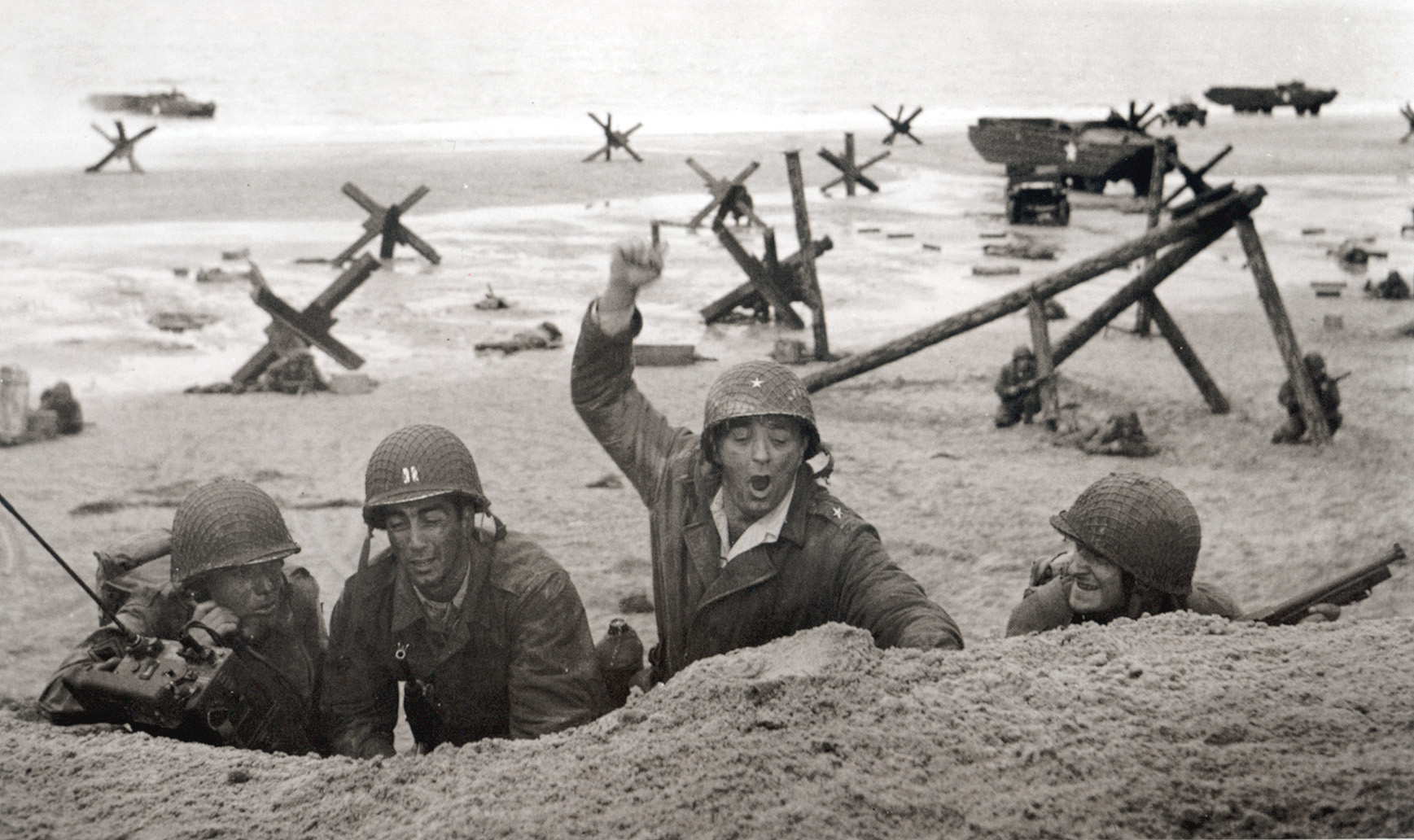
For Italian history, Mussolini is depicted by George C. Scott, Bob Hoskins (who also plays Nikita Khrushchev in Enemy at the Gates), and Steiger (the latter in Lion of the Desert, with Oliver Reed and Anthony Quinn both in one of their best roles).
World War II has been rich territory indeed for filmmakers. There’s Count Down to War (Ian McKellen as Hitler and Michael Aldridge as Neville Chamberlain), The Rocketeer (a backpack for stormtroopers designed by Howard Hughes), Inside the Third Reich (Jacobi as Hitler and Rutger Hauer as Albert Speer), Tora! Tora! Tora! (Pearl Harbor minus FDR), MacArthur (Peck in the title role, with Dan O’Herlihy as FDR and Ed Flanders doing a great Truman), The Guns of Navarone (Peck with Quinn), The Gallant Hours (James Cagney as “Bull” Halsey), two versions of South Pacific (Mitzi Gaynor and Glenn Close), and Operation Daybreak (with Timothy Bottoms as the assassin of SS General Reinhard Heydrich). And who can forget The Bridge on the River Kwai with William Holden, Sir Alec Guinness, and Sessue Hayakawa.
Then there’s The Eagle Has Landed (a plot to kidnap Churchill backed by Donald Pleasence as Heinrich Himmler in a tour de force performance), George C. Scott as Patton, Duvall as Ike, The Longest Day and Saving Private Ryan in twin views of D-day, Operation Crossbow (Peppard and Loren) about the Nazi “vengeance weapons” program, Is Paris Burning? (Orson Welles saves the day again), A Bridge Too Far (the Arnhem tragedy), The Sands of Iwo Jima (Wayne), and Kelly’s Heroes (Shermans plus Tigers equal gold bars).
Lancaster and Peter Falk team up to defend Castle Keep, while Burt and the French Underground stop French art from going to Germany in The Train. Frank Sinatra and Trevor Howard take on Italian trains, the SS, and Italian Fascists to escape from Italy in Von Ryan’s Express, while Hitler goes underground to The Bunker at last in a series of films starring Anthony Hopkins, Jacobi, Guinness, and Frank Finlay as Hitler; all are superb, too. So much for The Big One.
The best film to come out of the Korean War, perhaps, is Pork Chop Hill (Peck). From Vietnam there was Oliver Stone’s Platoon, Kubrick’s Full Metal Jacket, and Francis Ford Coppola’s Apocalypse Now, plus The Deer Hunter and many others.
Let’s conclude with the Cold War era. All of the great James Bond movies qualify here, even the bad ones. My favorite is On Her Majesty’s Secret Service with George Lazenby (yes, you read right). Connery switches from Bond to Rusky sub skipper in The Hunt for Red October. All the Tom Clancy-based spy thrillers-as-movies are Cold War based; the best in my opinion is Clear and Present Danger. Seven Days in May depicts a fictitious military coup d’etat in 1960s America.
Finally, aspects of nuclear warfare in the Cold War have been handled in The Missiles of October (Sheen as RFK and William Devane as JFK) and 13 Days (Steven Culp as RFK and Bruce Greenwood as JFK), with General Curtis LeMay as the heavy in both. Depicting the worst in military possibilities were Fail-Safe (with Henry Fonda) and Dr. Strangelove, or: How I Learned to Stop Worrying and Love the Bomb with Peter Sellers and George C. Scott.
And so we have gone cinematically in a more or less military fashion from chariots on the Nile to errant technology of an imagined future. Filmmakers have tried to capture just about all of it. Collectors can assemble a “library” of the good, the bad, the ugly, and the beautiful with a little energy, time, and a fist full of dollars.
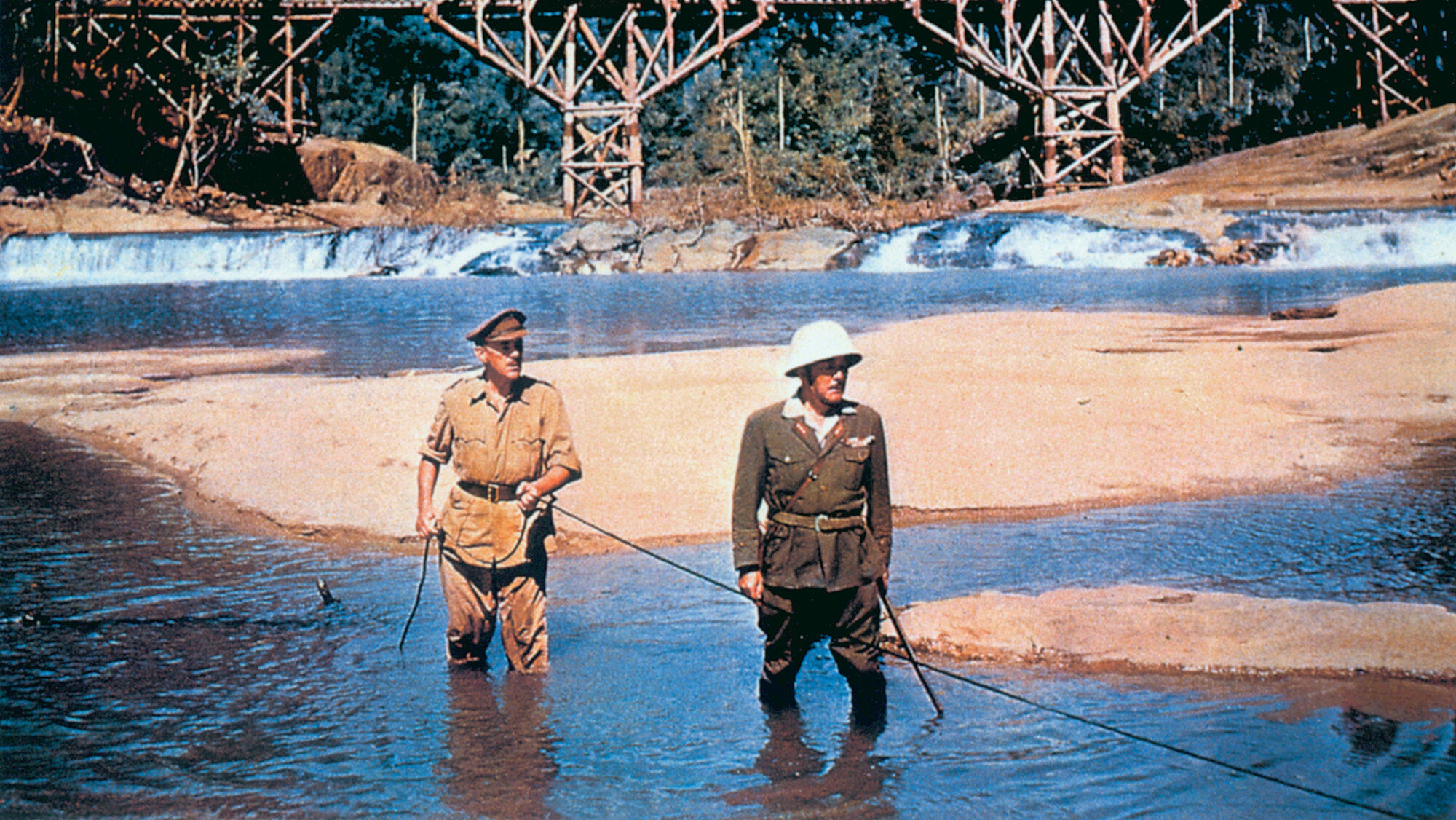
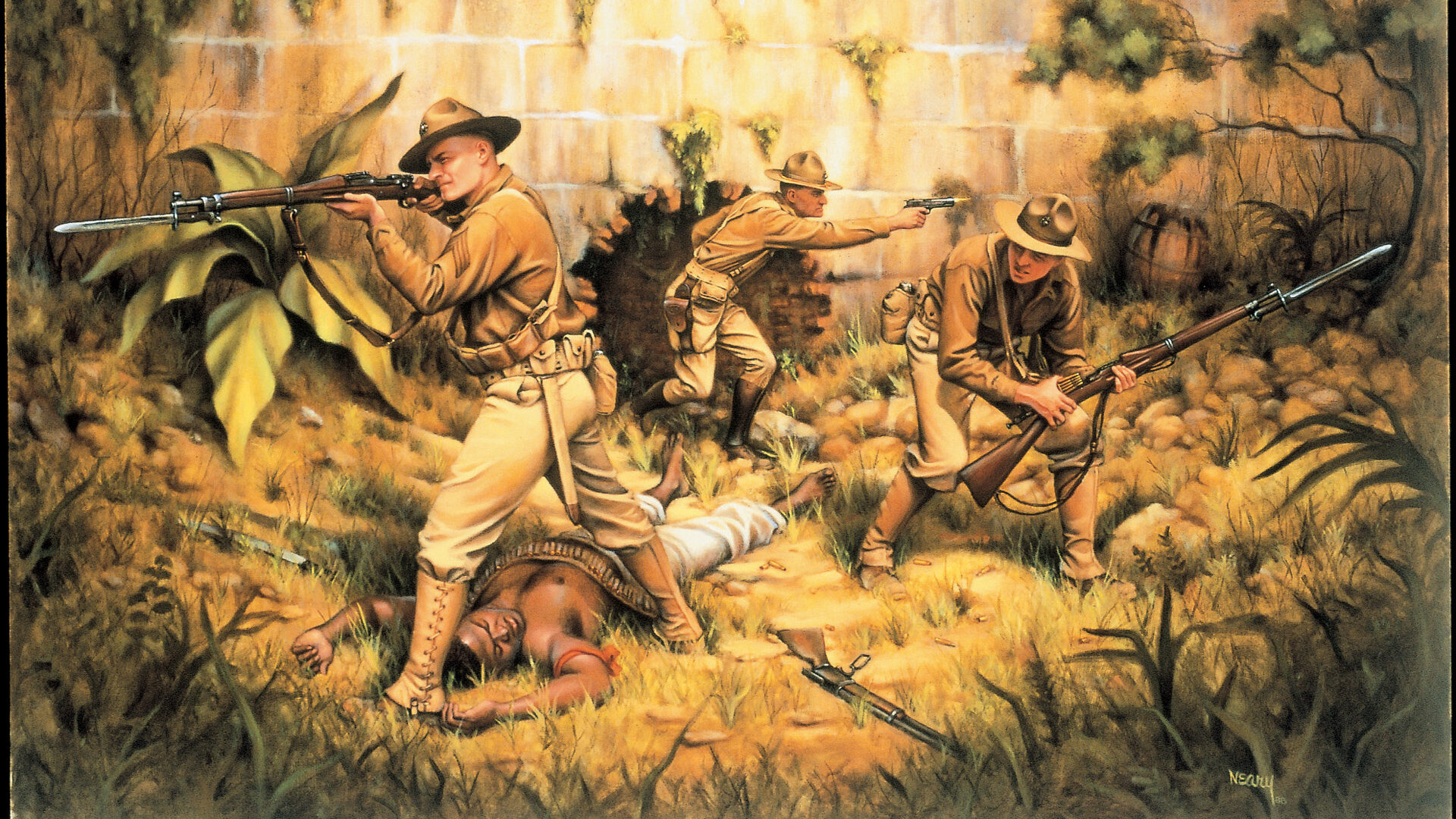
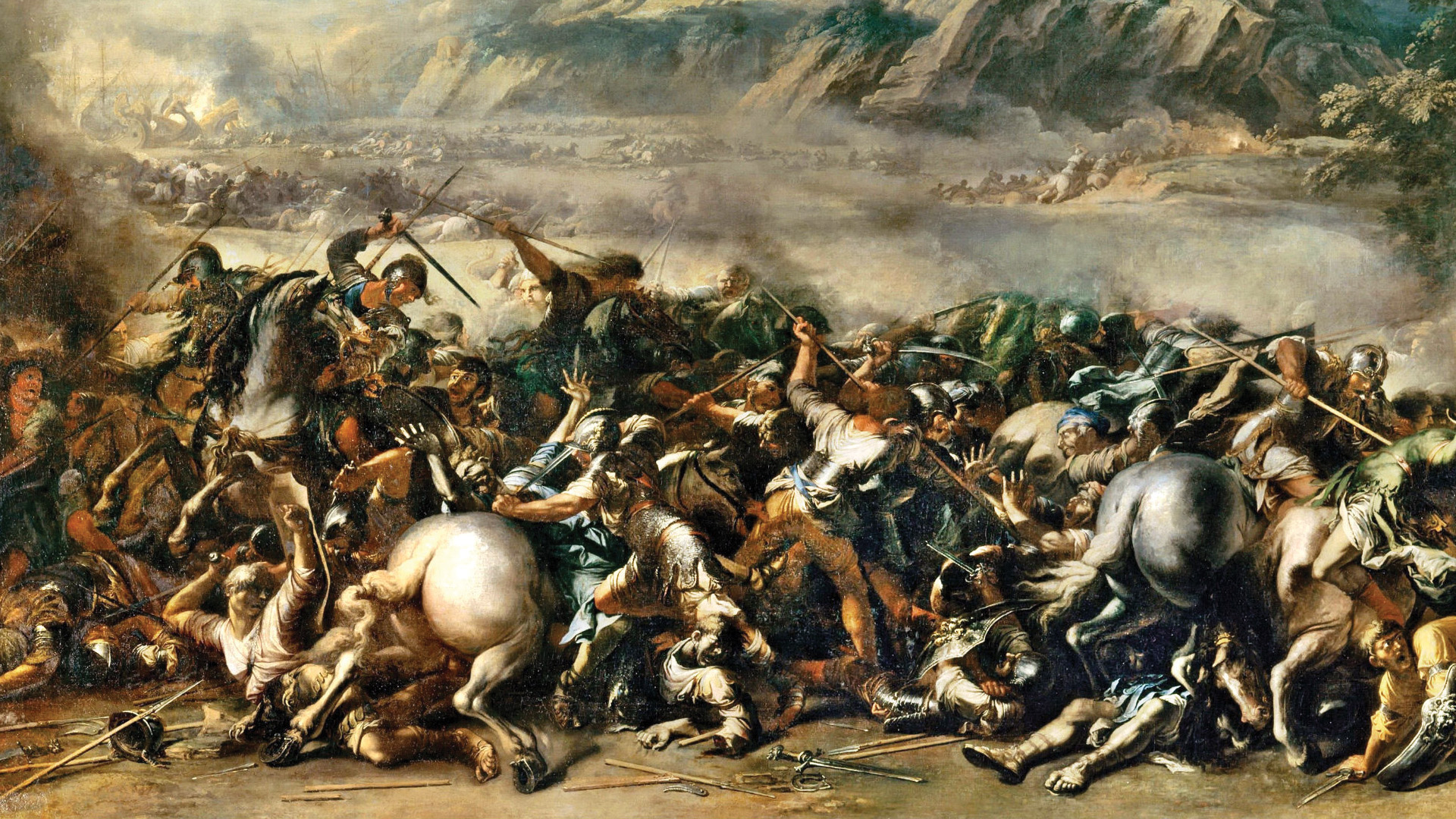
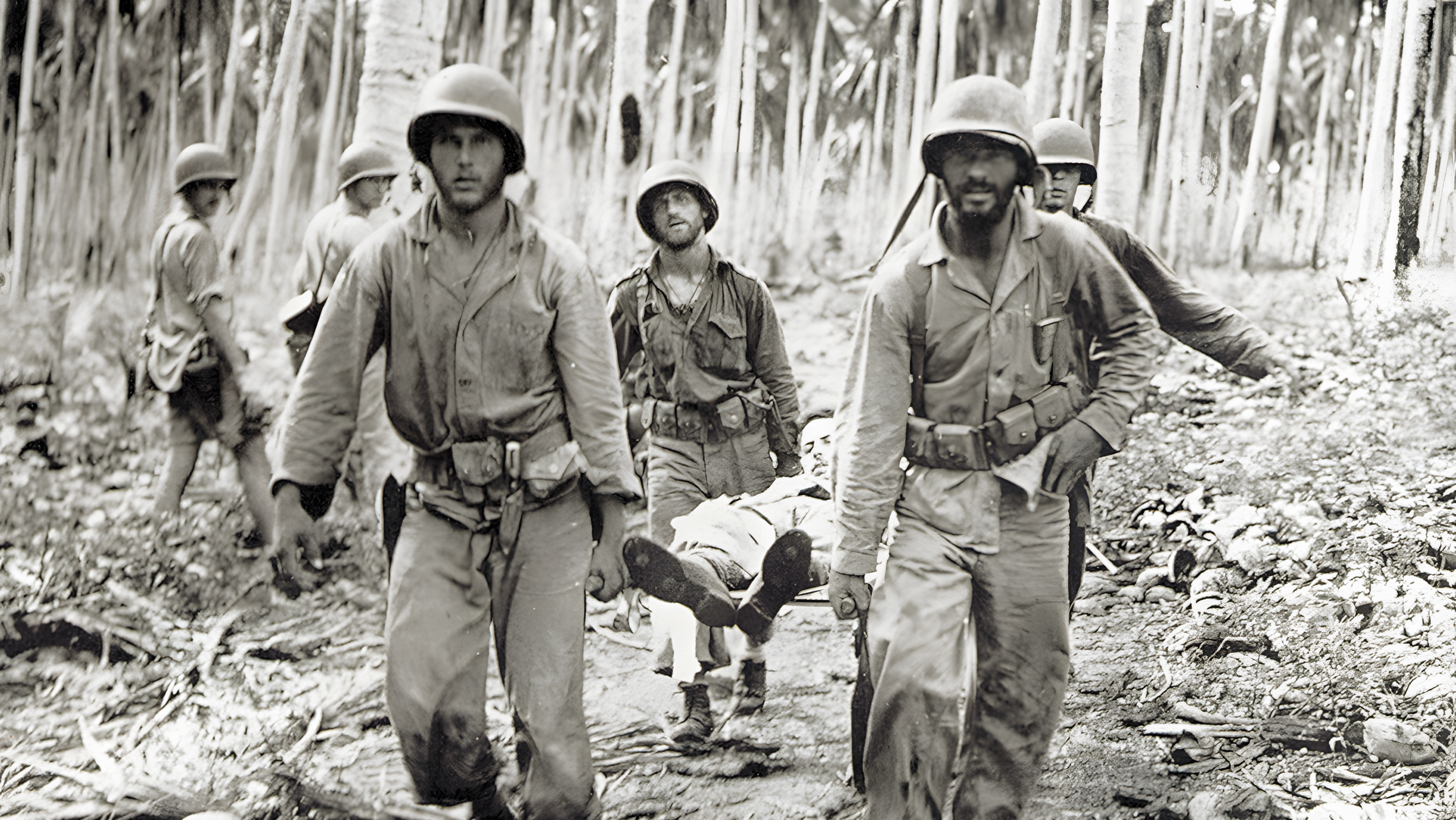

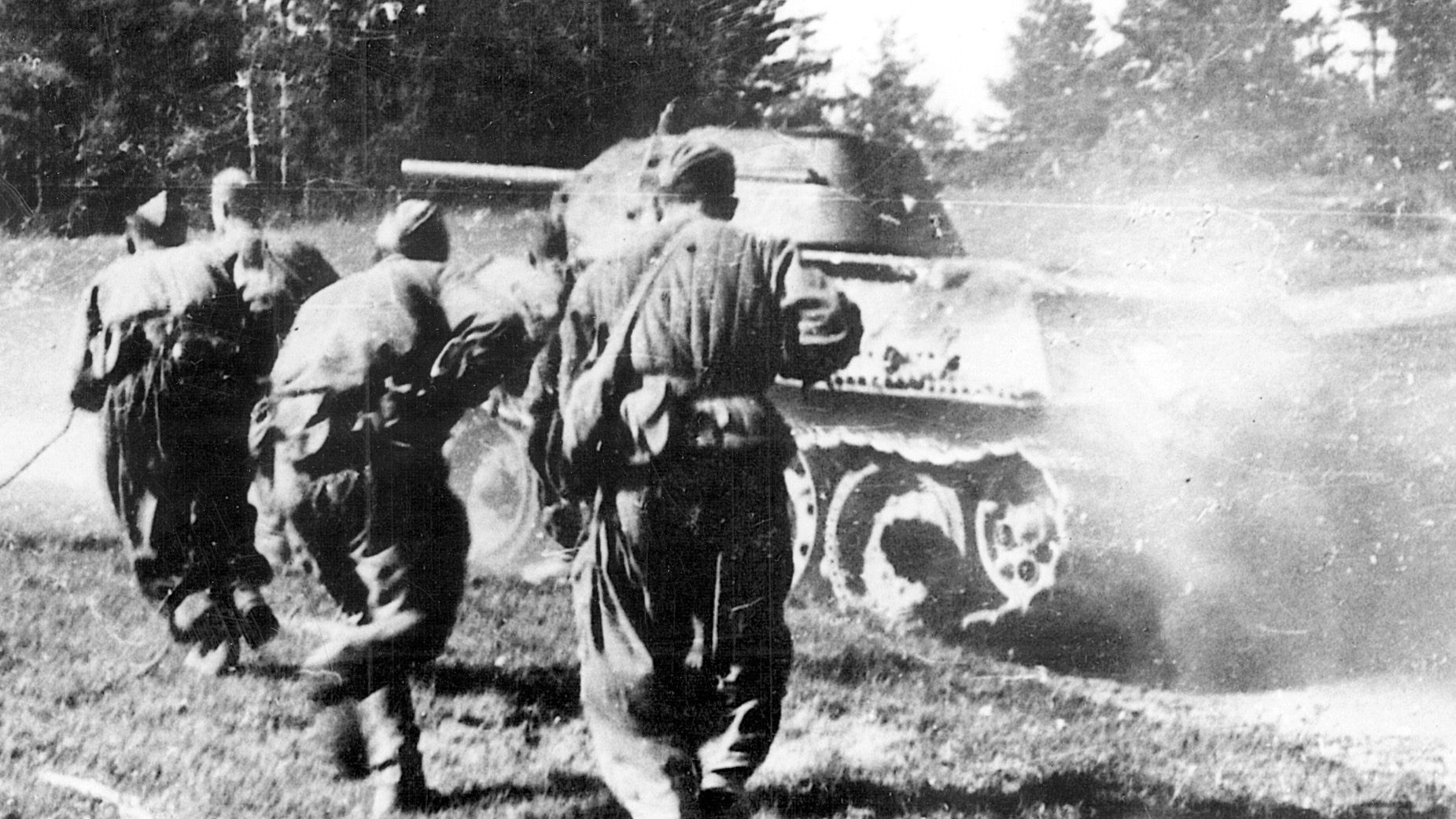
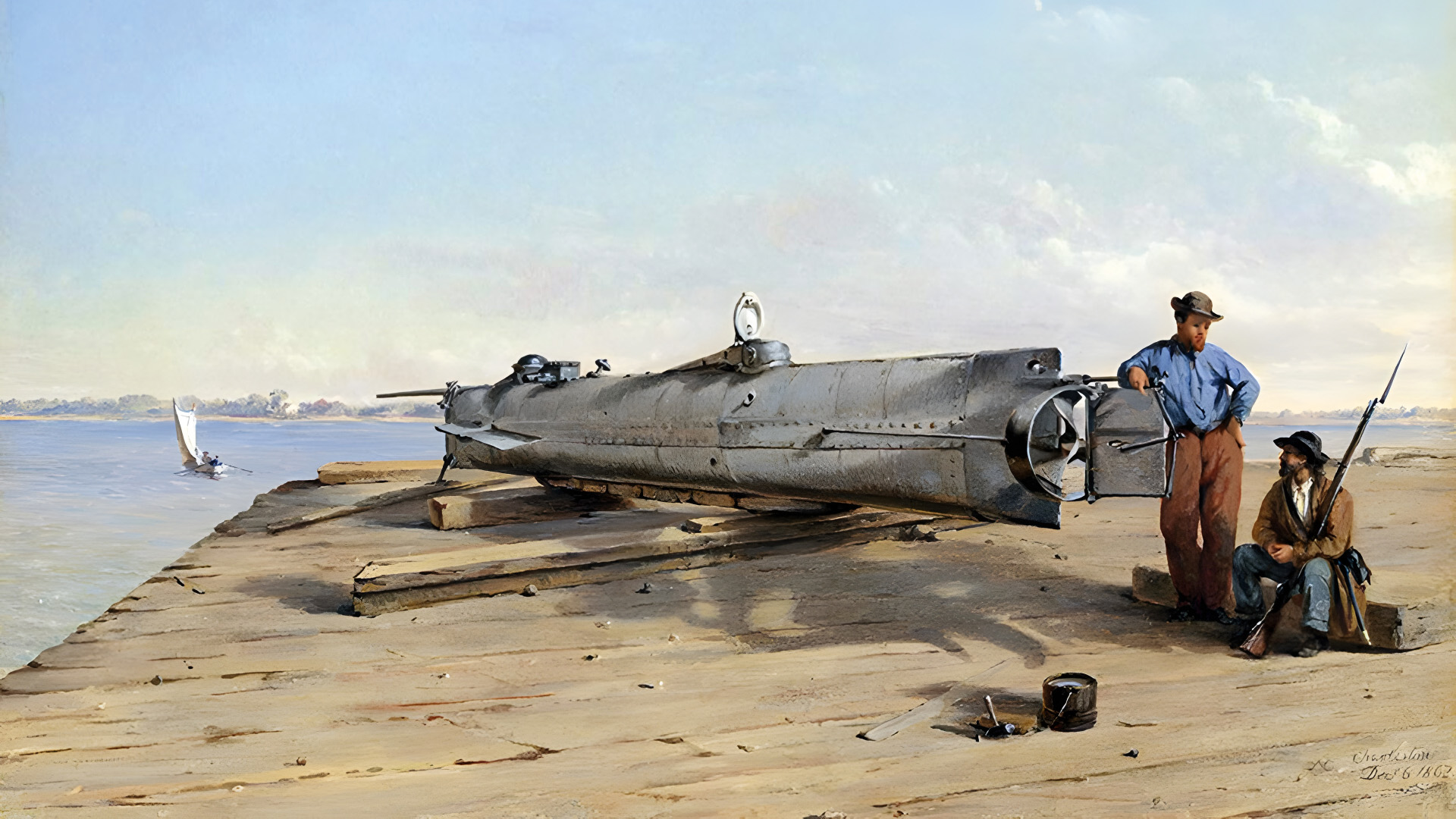
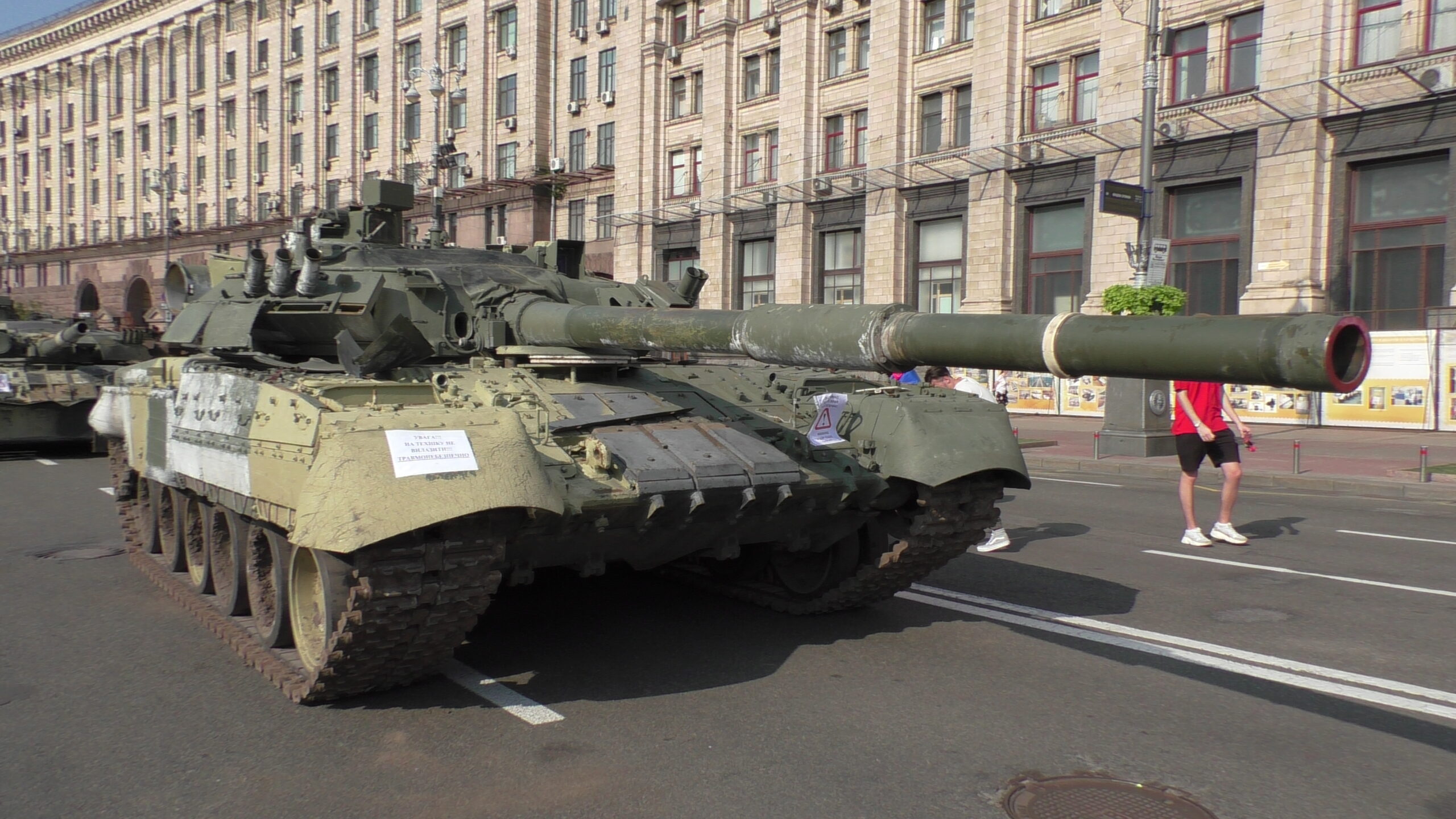
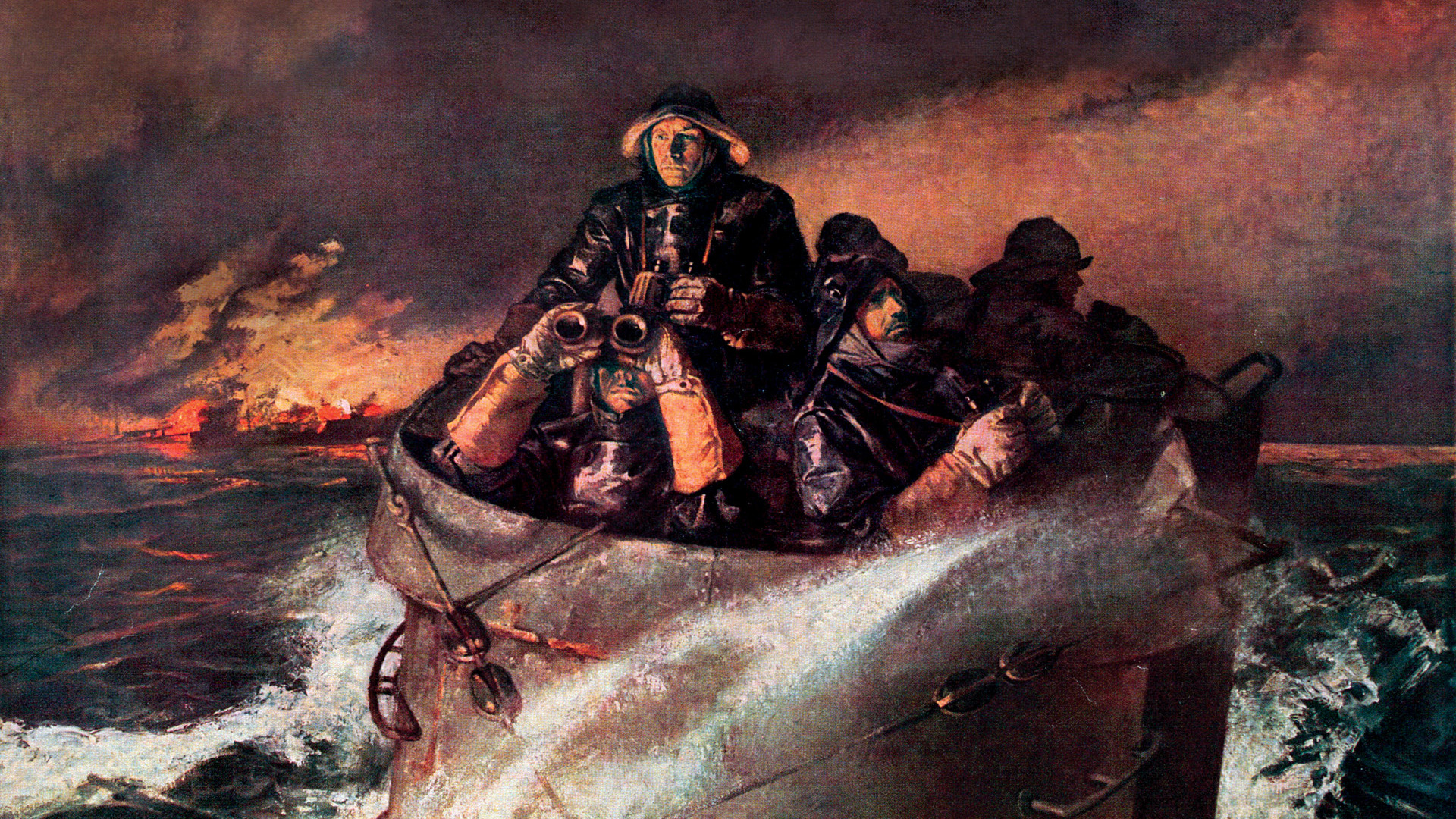
Join The Conversation
Comments
View All Comments